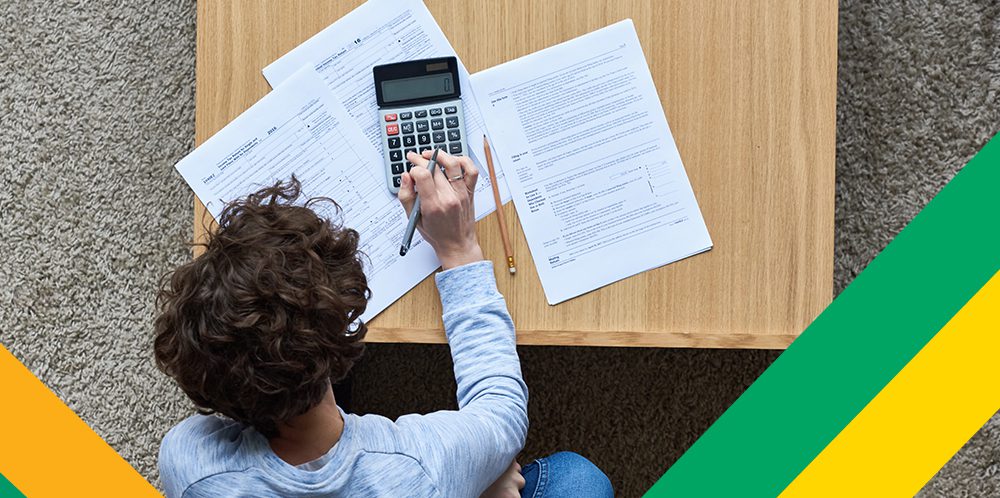The ways a taxpayer can choose to spend his or her tax-refund dollars are virtually limitless. But it goes without saying that not all of them are especially wise and responsible options. (And many of the most tempting ways to spend the funds fall squarely outside the forward-thinking category.)
Sure, anytime a monetary windfall like a tax refund lands, a splurge or two may well be in order. But for those looking to put the bulk of their funds toward an improved financial future, spending lavishly on things like shopping sprees, lottery tickets, extended vacations and the like are typically not the best investments.
So, what are some of the best ways you can invest your tax refund to put yourself in a better financial position down the road? Consider these six wise ways to invest (at least the majority of) your tax refund:
- Pay down your debt — Perhaps the smartest move for anyone carrying high-interest debt — including credit card debt, which in the U.S. carries an average APR of over 16% — is to pay it down as much and as quickly as possible. These kinds of debts can serve as a serious drag on any consumer’s bottom line. And when they are allowed to linger, they grow. In fact, the amount paid in interest over time can in many cases exceed the amount borrowed, resulting in a persistent (and growing) financial burden.
- Create an emergency fund — Unfortunately, unexpected expenses are a fact of life. And when the car needs repairs or the basement floods, consumers who don’t have the cash on hand to remedy these misfortunes may have to resort to paying the bills with a credit card — all too often resulting in the financial quagmire outlined above. A good rule of thumb is to try to have at least three to six months’ worth of income stashed away in a rainy-day fund. But if that level of savings just isn’t realistic, putting as much as possible into a savings account can help you weather the storm when costly and unexpected expenses arise down the road.
- Fund your future retirement — Everyone would like to have enough money saved up to live comfortably in their retirement years. And whether you already have a 401(k) plan going through your employer or not, a tax refund presents a great opportunity to put funds away in an individual retirement account (IRA) and let it grow over time. Consider this: If a taxpayer puts a $3,000 refund away in a retirement account that’s earning an average return of 6% a year and leaves it untouched, he or she will have more than $5,000 in that account in 10 years, all from that single deposit alone. Put that same $3,000 amount into the account for each of those 10 years, and thanks to compounding interest, the $30,000 total put into the account will have become more than $40,000 at the end of the decade. Do the same for 20 years, and the $60,000 total deposited will have nearly doubled to around $120,000.
- Improve your home — If you own your own home, investing in it is a way to both improve your daily quality of life now, and increase the value of your home so that you make more money when you sell it later. Further, some home improvements, such as installing new windows or upgrading old appliances, can deliver big energy savings that cut down on your monthly bills, helping you improve your long-term financial position. If you’ve got a home enhancement in mind that your tax refund will cover, investing in it is a great way to boost your at-home happiness and build equity in what, if you’re like most people at least, is your most valuable single financial asset.
- … or pay down your mortgage principal — For many homebuyers, very little of the monthly payment they make on their homes actually pays down the mortgage principal, as the initial years of payments instead go primarily toward paying off the interest on the long-term home loan. But when extra payments are made — with a tax refund, for example — the full amount of the pre-payment can typically be applied directly toward paying down the principal. And because paying down the principal will reduce the amount paid in interest over time, this can result in substantial savings for the homebuyer over the long haul — not to mention shorten the window to full mortgage payoff.
- Invest in yourself — Building on your professional skills is a great way to boost your career prospects, whether it be by earning a salary-increasing promotion or finding a new, higher-paying job. If you feel strongly that acquiring specific, sought-after skills would increase your value in the workplace, consider using your tax refund to pay for the tuition needed to gain the knowledge and expertise that can help you advance your career. In addition, you may be able to deduct the cost of any classes you take from your taxable income, potentially lowering your tax liability — and increasing the amount of your tax return — next year.
Proudly serving South Carolina since 1933, Arthur State Bank offers accounts and services to meet a variety of financial needs. To help you achieve all your financial goals, the bank offers in-person service as well as a range of convenient digital solutions. To learn how Arthur State Bank can help you with banking needs ranging from checking and savings to retirement accounts, mortgages, other personal loans and more, visit arthurstatebank.com.






















